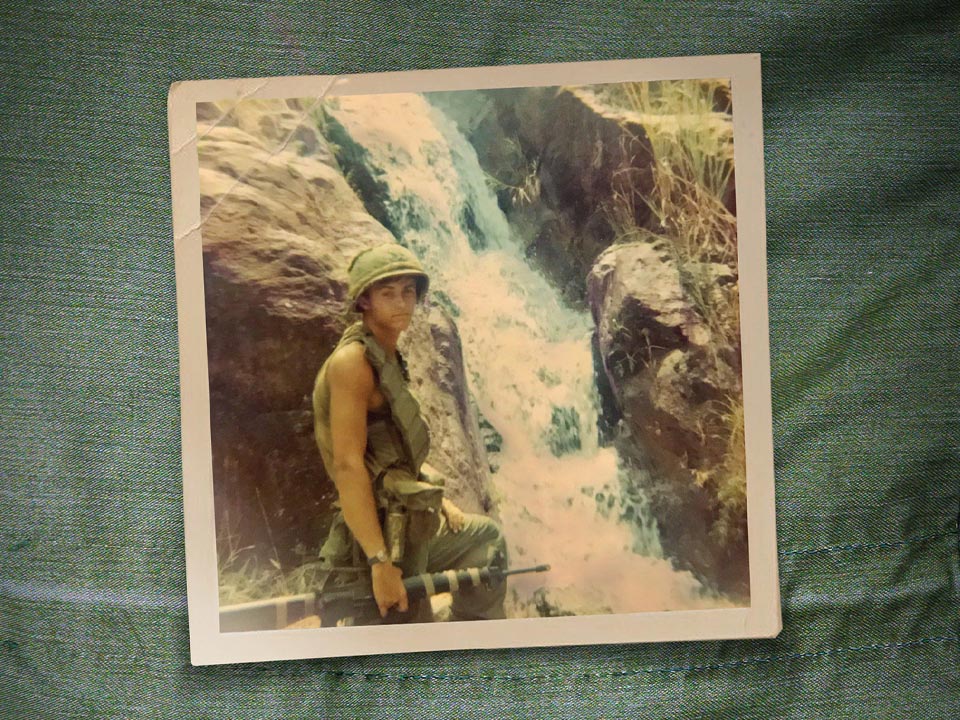TITLE: Bleeding Spirits: A Combat Soldier’s Memoir of the Vietnam War
Author: Robert E. Jewell (Farcountry Press, 2019)
The year I was in seventh grade, 1979, marked only four years from the end of the Vietnam War (the last troops left in 1975).
It so happened that I had two seventh-grade teachers who were both veterans of that war.
In fact, At the time, I only knew that one of the two teachers had been in the war. I knew because he talked about it in class, often with tears in his eyes. In some respects, that particular teacher was kind of a jerk.
I saw him humiliate kids on more than one occasion, including once when he towered over a kid in my class like a drill sergeant. He screamed at my classmate so loudly other teachers started sticking their heads out in the hall.
Post Traumatic Stress Disorder
This was no doubt a manifestation of Post-Traumatic Stress Disorder (PTSD), but I didn’t know that at the time.
I don’t think knowing would have made the poor kid he yelled at feel any better, though.
The other teacher I had didn’t talk about the war at all. From his constant beaming smile to his patience with every student, you would never have known that he had been in the war. You’d never know of his serious PTSD affliction.
Bob Jewell
I never saw that teacher again after seven grade, but last week I picked up a copy of a Vietnam memoir.
I recognized his author picture. His name was Robert Jewell, and his book is called Bleeding Spirits: A Combat Soldier’s Memoir of the Vietnam War 1968-1969.
Bob Jewell was drafted in 1967 into the 196th Light Infantry Brigade, Charlie Company.
By January of 1968, he found himself more than 10,000 miles from his Great Falls home at Chu Lai airfield in Vietnam, in the first week of the Tet Offensive.
Even though he suffered from pneumonia and jet lag after his 18-hour flight in a cargo plane, he found himself suddenly dropped straight into a hot war zone.
That shocking entry became a fitting introduction to Jewell’s 416-day odyssey through some of the most harrowing battles of the war.
Other Books on Vietnam
I’ve read a lot of books on Vietnam, including a number of memoirs that have become classics now—Michael Herr’s Dispatches, or Philip Caputo’s The Things They Carried.
Many of those books are more skillfully written or more artful in their depiction of the mundane horror of the Vietnam War. But none of those books has disturbed me as much as Bleeding Spirits, or left such a deep impression on me.
In fact, I don’t recall reading another book whose first page offers a polite warning to the reader about the graphic details about to follow, including an apology for some of the language.
Part of what makes this book so powerful is that, the entire time you’re reading it, you feel the good-hearted, ordinariness of the author.
Through the Eyes of A Montana Kid
He was just a kid—18 or 19—suddenly forced to live for more than a year in a foreign jungle.
He was at the mercy of the U.S. Army and whatever luck emerged from the hell he found himself surrounded by.
About midway through the book, you realize that Jewell undertook the enterprise of writing his memoir as a way of coping with his own PTSD, which he successfully suppressed for almost 20 years.
What makes this book so readable, and so believable, is the author brings the reader along as he sorts through his own fractured memories and his own moments of self-doubt and guilt and terror.
If you want a book that describes the full infantry experience—not just the rigor of boot camp and the horror of war’s inevitable carnage, not just the thrilling excitement of combat, but also the aftermath, the night terrors, the lost memories, the itching shrapnel wounds—you won’t find a more real book.
Jewell has succeeded in presenting the reality of the war as seen through the naive eyes of a kid from Montana.
More important, he has succeeded in telling his own story.
His narrative conveys the war in a way that makes us realize that, for better or worse, it made Robert Jewell into the person he became.
Though he suffered his private trauma, he coped by becoming a kind and dedicated teacher, and by devoting himself to raising his children.
Path to Healing
As he grew older and realized the darker parts of his life stemmed from memories he had suppressed, he actively sought to heal himself and recover what he had lost or suppressed.
Jewell may not have the literary prowess of Hemingway, but his sentences exude a rare kind of sincerity that makes the entire gamut of his experience vivid and real for the reader.
For example, throughout the text, Jewell punctuates his narration of what happened in a certain firefight with asides that are like confessions.
“As I now recount this horrible tragedy, it takes everything I have to hold my thoughts together. The searing memory pleads with my mind to banish the images into the blackness of my repression!”
A Brutally Honest Story
Bleeding Spirits is a war story, but it’s also a brutally honest story of a man who volunteered himself for his country.
He didn’t know ahead of time that, even for survivors, the commitment requires incredible sacrifice.
The Tales of Two Sons
In one of the more heartbreaking passages, Jewell recounts how his mother, shortly before she died, expressed her sorrow at having lost her son to the war.
“The son who came back was not the son who left,” she says.
Jewell’s story is his effort to reconcile those two sons: to acknowledge the loss of his youth and innocence and yet make sense of himself as a survivor in a world that still cannot fully process the impacts of America’s war in Vietnam. MSN










